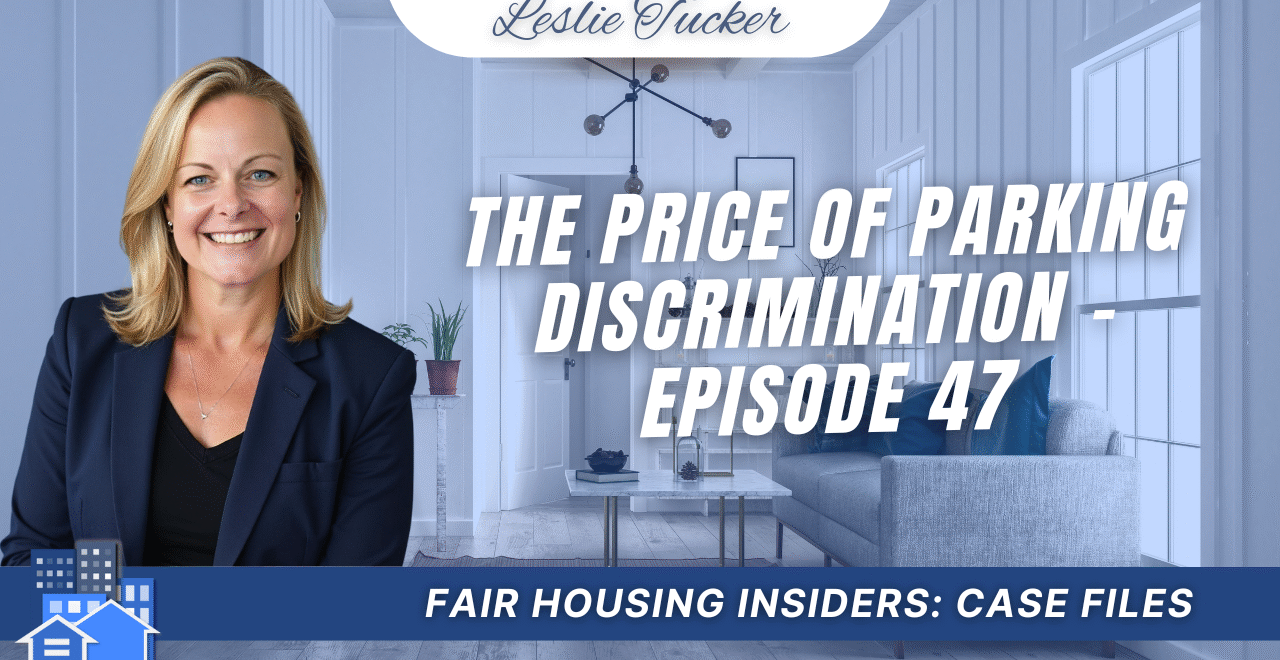Parking may seem like a simple operational matter, but when it intersects with disability rights under the Fair Housing Act (FHA), it can quickly become a compliance issue. A recent case involving Aon Management and several affiliated property owners highlights how blanket parking policies, when applied without flexibility, can result in discrimination claims.
How the Case Began
In 2020, three nonprofit fair housing organizations conducted fair housing tests across multiple properties in Pennsylvania and Delaware managed by Aion Management. Testers posed as individuals or family members requesting assigned parking due to mobility impairments. At all seven properties, leasing staff allegedly gave consistent answers: parking was strictly first-come, first-served, and reserved spaces were not available. In some cases, staff explained that tenants could apply for accessible parking through the Department of Motor Vehicles or rent a space in a garage for an additional fee, but at no point did anyone suggest that a reserved parking space could be considered as a reasonable accommodation.
The Legal Response
Following the testing, the three organizations filed a joint HUD complaint alleging violations of the Fair Housing Act. HUD’s investigation found merit in the claims, and in 2023, the agency issued a charge of discrimination. The charge stated that the properties and management had refused to provide reasonable accommodations, made housing unavailable because of disability, and made statements that suggested limitations or preferences based on disability.
The respondents chose to move the matter to federal court, and the Department of Justice subsequently filed suit. In addition, the fair housing organizations that conducted the testing sought to intervene, giving them the ability to request damages for the time and money they invested in the investigation.
Lessons for Housing Providers
This case underscores an important point: the Fair Housing Act requires equitable treatment, not just equal treatment. A policy that prohibits assigned parking for all residents may be neutral on its face, but when a resident with a mobility impairment requests a reserved space and is denied, that denial can be considered a violation of the law. Reasonable accommodations require flexibility and a willingness to consider exceptions to standard policies.
It also highlights the importance of staff training. Leasing agents are often the first point of contact for prospective residents, and their answers matter. A quick “no, we don’t do that here” response to an accommodation request can create liability. Staff should know how to identify these requests, explain the company’s process, or direct those requests appropriately. The way a request is handled, documented, and reviewed is just as important as the final outcome. Even if a request is ultimately denied, the housing provider must be able to show that the decision was justified and based on proper evaluation, not simply dismissed out of hand.
Moving Forward
This case is a reminder that everyday policies like parking rules must be adaptable when disability accommodations are involved. Housing providers should regularly review their accommodation procedures, ensure that staff are prepared to handle requests appropriately, and confirm that documentation is consistent and thorough.
Fair housing compliance is more than a legal requirement—it is a commitment to creating communities where residents have equal access to housing and amenities. Something as routine as parking can become a defining issue, and how providers respond can make the difference between fostering inclusion and facing serious legal consequences.
You Might Also Like:
- Update on the Accessible Parking Case You’ve Been Following – Episode 49
- When Eviction Becomes Retaliation – Episode 48
- Case Files: The Price of Parking Discrimination – Episode 47
- Case Files: ESA Denied After Online Provider Verification—What Went Wrong? – Episode 46
- Case Files: When Mold, Disability, and Retaliation Collide – Episode 45

